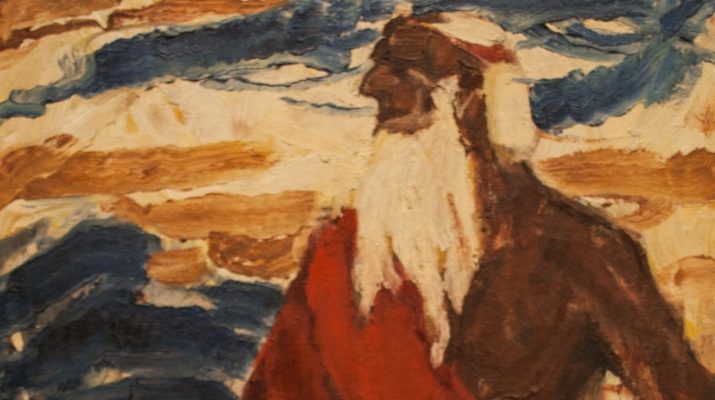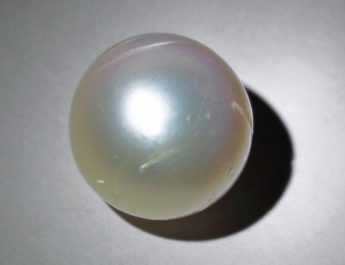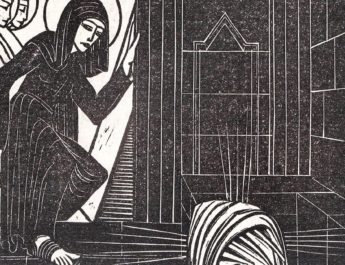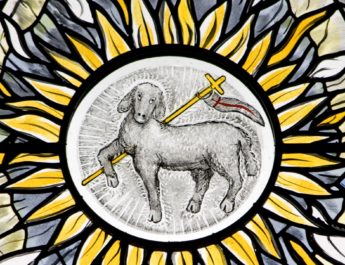Hebrews 11:23-28
Maundy Thursday – A Women’s Lectionary
23 By faithA MosesB was hiddenC by his parentsD
A “faith” = pistis. From peitho (to have confidence, urge, be persuaded, agree, assure, believe, have confidence, trust). This is less about knowing, believing, and repeating a list of doctrines then it is about trusting God. Faith means listening to God and seeking to live a holy life even (and especially) when we don’t understand how everything works or fits together. Faith is about being faithful (trusting and doing) rather than being all knowing.
B “Moses” = Mouses. From Hebrew Mosheh (Moses); from mashah (to pull out in a literal or figurative sense, to draw out) OR from Egyptian mes or mesu (child, son i.e. child of…). This is Moses – the one drawn out from the water, which is to say, rescued. If derived from the Egyptian, his name would share a root with Rameses and Thutmose.
C “hidden” = krupto. 18x in NT. This is to hide by covering, secret, hidden things. This is the root of the word “cryptography.”
D “parents” = pater. This is father in a literal or figurative sense. Could be elder, senior, ancestor, originator, or patriarch.
for three monthsE after his birth,F because they sawG that the childH was beautiful;I
E “three months” = trimenon. 1x in NT. From treis (three) + men (month). This is for three months.
F “birth” = gennao. From genna (descent, birth); from genos (family, offspring, kin – in a literal or figurative sense); from ginomai (to come into being, to happen, become, be born; to emerge from one state or condition to another; this is coming into being with the sense of movement or growth). This is to beget, give birth to, or bring forth. Properly, it refers to procreation by the father, but was used of the mother by extension. Figuratively, this can mean to regenerate.
G “saw” = horao. To see, perceive, attend to, look upon, experience. Properly, to stare at and so implying clear discernment. This, by extension, would indicate attending to what was seen and learned. This is to see, often with a metaphorical sense. Can include inward spiritual seeing.
H “child” = paidion. From pais (child, youth, servant, slave); perhaps from paio (to strike or sting). This is a child as one who is still being educated or trained. Perhaps one seven years old or younger. Used figuratively for an immature Christian.
I “beautiful” = ateios. 2x in NT – both times in reference to Moses. From astu (city). This is related to the city, which would imply urbane, beautiful, clever, elegant.
and they were not afraidJ of the king’sK edict.L
J “afraid” = phobeo. From phobos (panic flight, fear, fear being caused, terror, alarm, that which causes fear, reverence, respect); from phebomai (to flee, withdraw, be put to flight). This is also to put to flight, terrify, frighten, dread, reverence, to withdraw or avoid. It is sometimes used in a positive sense to mean the fear of the Lord, echoing Old Testament language. More commonly, it is fear of following God’s path. This is where the word phobia comes from.
K “king’s” = basileus. Probably from basis (step, hence foot; a pace); from baino (to walk, to go). This is king, emperor, or sovereign.
L “edict” = diatagma. 1x in NT. From diatasso (to arrange thoroughly, charge, appoint, give orders to; a command that is a proper order, given with the chain of command and so binding; from ancient military language); {from dia (through, across to the other side, thoroughly) + tasso (to arrange, appoint, determine)}. This is an arrangement, decree, or commandment.
24 By faith Moses, when he wasM grownN up, refusedO to be calledP a sonQ of Pharaoh’sR daughter,S
M “was” = ginomai. Related to “birth” in v23. See note F above.
N “grown” = megas. This is big in a literal or figurative sense – great, large, exceeding, abundant, high, mighty, perfect, strong, etc.
O “refused” = arneomai. From a (not) + rheo (say, speak of). This is to deny, disown, refuse, repudiate someone or a previously held belief, to contradict.
P “called” = lego. This is to speak, say, name, call, command. It is generally to convey verbally.
Q “son” = huios. This is son, descendant – a son whether natural born or adopted. It can be used figuratively for other forms of kinship.
R “Pharaoh’s” = Pharao. 5x in NT. From Egyptian pr (palace, pharaoh; literally house + great). This is Pharaoh, a title for Egyptian kings. See https://en.wiktionary.org/wiki/pharaoh
S “daughter” = thugater. This is daughter, a related female or one who lives with you.
25 choosingT ratherU to share ill-treatmentV with the peopleW
T “choosing” = haireo. 3x in NT. Probably related to airo (raise, take up, lift, remove). This is to choose, prefer.
U “rather” = mallon. This is rather, more than, or better.
V “share ill-treatment” = sugkakoucheomai. 1x in NT. From sun (with, together with) + kakoucheo (to mistreat, hurt); {from kakos (bad, evil, harm, ill; evil that is part of someone’s core character – intrinsic, rotted, worthless, depraved, causing harm; deep inner malice that comes from a rotten character; can be contrasted with the Greek poneros, which is that which bears pain – a focus on the miseries and pains that come with evil; also contrasting the Greek sapros, which deals with falling away from a previously embodied virtue) + echo (to have, hold, possess)}. This is to endure adversity or persecution together with.
W “people” = laos. This is the people or crowd – often used for the chosen people. This is where the word “laity” comes from.
of GodX than to enjoyY the fleetingZ pleasures of sin.AA
X “God” = Theos. From Proto-Indo-European origins, meaning do, put, place. This is God or a god in general.
Y “enjoy” = echo…apolausis. Echo is related to “share ill-treatment” in v25. See note V above. Apolausis is 2x in NT. From apolauo (to enjoy); {from apo (from, away from) + lauo (to enjoy)}. This is enjoyment, a benefit.
Z “fleeting” = proskairos. 4x in NT. From pros (at, to, toward, with, among) + kairos (season, opportunity, occasion; spiritually significant time – the right time or appointed time). This is for a season, fleeting, temporary, or something that only lasts for a short time.
AA “sin” = hamartia. From hamartano (to miss the mark, do wrong, make a mistake, sin); {from a (not) + meros (a part or share)}. Literally, this means not having one’s share or portion – like not receiving inheritance or what was allotted to you. This word means missing the mark so it is used for guilt, fault, and acts of sin.
26 He consideredBB abuseCC suffered for the ChristDD
BB “considered” = hegeomai. From ago (lead, bring, carry, drive, guide, go). This is to think, suppose, have an opinion. It is to lead the way, what comes in front or first, initial thought, high esteem or authority. It can refer to one who commands in an official capacity. This word shares a root with the word “hegemony.”
CC “abuse” = oneidismos. 5x in NT. From oneidizo (to disgrace, insult, mock, blame, or curse someone so as to create shame; when a person or thing is considered guilty and deserving punishment; to denounce, revile, defame, or chide); from oneidos (a personal disgrace that leads to harm to one’s reputation, a taunt or reproach); perhaps from the base of onoma (name, authority, cause, character, fame, reputation); perhaps from ginosko (know, recognize, learn from firsthand experience). This is reproach, disgrace, reviling.
DD “Christ” = Christos. From chrio (consecrate by anointing with oil; often done for prophets, priests, or kings). Literally, the anointed one, Christ. The Greek word for Messiah.
to be greaterEE wealthFF than the treasuresGG of Egypt, for he was looking aheadHH to the reward.II
EE “greater” = megas. Same as “grown” in v24. See note N above.
FF “wealth” = ploutos. From polus (much, many, abundant) OR pleo (to sail, voyage); {probably from pluno (to plunge – so to wash); from pluo (to flow)} OR pletho (to fill, accomplish, supply; to fill to maximum capacity). This is abundance, wealth, or riches. It could refer to money/possessions or spiritual abundance. It can also be used for a valuable bestowment.
GG “treasures” = thesauros. 17x in NT. From tithemi (to place, lay, set, establish). This is treasure, storehouse, deposit. It can be used figuratively for treasured thoughts.
HH “looking ahead” = apoblepo. 1x in NT. From apo (from, away from) + blepo (to see, used primarily in the physical sense; figuratively, seeing, which includes attention and so to watchfulness, being observant, perceiving, beware, and acting on the visual information). This is to gaze at – to look at something to the exclusion of other things.
II “reward” = misthapodosia. 3x in NT. From misthos (wages, pay, salary; reward, recompense, punishment; pay for services rendered in a literal or figurative way, good or bad) + apodidomi (to give back, return, give away; to restore as when one makes payment – to rend what is due, to sell); {from apo (from, away from) + didomi (give, offer, place, bestow, deliver; give in a literal or figurative sense)}. This is compensation, whether a wage, a reward, or a punishment.
27 By faith he leftJJ Egypt,KK unafraid of the king’s anger;LL for he perseveredMM as though he saw him who is invisible.NN
JJ “left” = kataleipo. From kata (down, against, throughout, among) + leipo (to leave behind, remain, lack, abandon, fall behind while racing). This is to leave or leave behind, abandon, forsake, leave in reserve.
KK “Egypt” = Aiguptos. From Egyptian ḥwt-kꜣ-ptḥ (Egypt; literally “the temple of the ka of Ptah in Memphis, Egypt”); from ḥwt (hut, large structure, palace, temple, estate) + ka (“a spiritual part of the soul in Egyptian mythology, which survived after death”; “something like ‘life-force’; the part of the soul which the living have and the dead do not…goodwill – especially of the king) + ptah (“a god of creativity and craftsmen, sometimes also identified with gods of death and the birth of the sun”; “Ptah, creator god and patron of craftsmen, worshipped at Memphis”). This is Egypt, meaning “the temple of the ka of Ptah.” See https://en.wiktionary.org/wiki/Egypt
LL “anger” = thumos. 18x in NT. From thuo (to rush along, breathe violently, offer sacrifice). This is passion, anger, rage, wrath. It refers to actions emerging from passion or impulse. It is also used for God’s wrath.
MM “preserved” = kartereo. 1x in NT. From kratos (strength, power, dominion; vigor in a literal or figurative sense; power that is exercised). This is to endure, be patient, be strong.
NN “invisible” = aoratos. Related to “saw” in v23. 5x in NT. From a (not, without) + horatos (visible, something that one can see); {from horao (see note G above)}. This is unseen, invisible. Figuratively, it can refer to spiritual reality.
28 By faith he keptOO the PassoverPP and the sprinklingQQ of blood,RR
OO “kept” = poieo. This is to make, do, act, construct, abide, or cause.
PP “Passover” = pascha. From Aramaic corresponding to Hebrew pesach (Passover or the offering for Passover); from pasach (to stop, pass over, skit over, to spare). This is Passover – used for the feast, the lamb of sacrifice, the day, and the festival itself. This is where the term “paschal” comes from as in the “paschal lamb.”
QQ “sprinkling” = proschusis. 1x in NT. From pros (at, to, toward, with) + cheo (to pour). This is a pouring on, effusion.
RR “blood” = haima. This is blood in a literal sense as bloodshed. Figuratively, it can also be used to refer to wine or to kinship (being related).
so that the destroyerSS of the firstbornTT would not touchUU the firstborn of Israel.VV
SS “destroyer” = olothreuo. 1x in NT. Probably from olethros (ruination, destruction, doom. It can also mean death, punishment, or undoing); from ollumi (to destroy). This is to ruin or slay.
TT “firstborn” = prototokos. 8x in NT. From protos (what is first, which could be the most important, the first in order, the main one, the chief); {from pro (before, first, in front of, earlier)} + tikto (to beget, bring forth, produce). This is firstborn or oldest. Figuratively, it can also mean pre-eminent.
UU “touch” = thiggano. 3x in NT. Perhaps from thigo (to finger). This is to handle, touch, harm.
VV “Israel” = autos. Literally, “them.”
Image credit: “Moses Seeing the Promised Land” by Christian Rohlfs, 1912.




